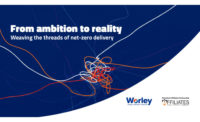The World Bank has agreed to allow Australia-based engineer Sinclair Knight Merz to continue bidding on bank-financed global work under a July 24 pact that settles "improper payment" issues on past projects that the firm itself discovered and reported.
SKM, which found the problems on unidentified projects in Southeast Asia and pointed them out last year, has terminated persons believed to be responsible for the ethical breaches and expanded anti-corruption programs throughout the company.
Neither the firm nor the bank provided detail on the projects or the nature of the payments.
Under the "conditional non-debarment" pact, SKM and the related units it "directly or indirectly controls" will remain eligible bidders for the next 2.5 years, the bank said on July 24.
The firm would be debarred immediately if it "fails to fulfill any of its obligations," said the bank.
Expanded 'Code of Conduct'
SKM introduced, in November 2012, a "more prescriptive and consolidated" code of conduct that applies to employees, corporate directors and officers, contractors, sub-consultants and suppliers, the company said.
 |
| Rizzuto |
SKM is the largest firm to receive a conditional debarment agreement, according to a published report. The firm, based in St. Leonard's in New South Wales, ranks at No. 25 on ENR's list of The Top 150 Global Design Firms, with $1.47 billion in total global revenue.
"The World Bank took into account SKM's cooperation and willingness to provide evidence in support of further investigations" of the lender's integrity unit, said Leonard McCarthy, World Bank group integrity vice president.
In a July 24 statement to the firm's 7,500 employees, SKM CEO and Managing Director Santo Rizzuto noted the firm's new code of conduct that bans "facilitation payments of any shape or form and [institutes] a strongly enhanced framework around the acceptance of gifts, entertainment and charitable giving."
SKM says it uncovered the improper payments during an internal review, followed by further investigation by additional board-apponted "external advisers." The firm says it is "confident that this was an isolated problem."
Rizzuto said the improper payments took place before the end of 2011, but the firm declines to disclose in what country or countries they occured. According to Rizzuto, the firm reported the illegal payments to the bank last August.
"To ensure objectivity and thoroughness, the board engaged independent legal and accounting advisers to assist with the design and conduct of the investigations," Rizzuto said.
Closed Business
The firm says it participated in "a number of World Bank-funded projects that typically ran over a number of years in several Southeast Asian countries." SKM adds that the questionable payments "originated in a small, non-core part of SKM’s business [that] was principally responsible for providing project services to international aid projects" and that the firm "has subsequently closed that part of its business on the basis that it is not core to its principal business operations."
The firm's website notes SKM's involvement in a $55-million coastal wetlands protection and development project in the Mekong River delta that entailed building new infrastructure and resettling up to 10,000 people; it was noted as being a "seven-year project," but a completion date could not be confirmed.
A spokesman says SKM "continues to be involved in and currently intends to continue bidding on various World Bank-funded projects."
SKM also announced on July 25 that independent international accreditation body Det Norske Veritas has certified the firm to BS10500, the British Standard on Anti-Bribery Management Systems—what it says is a globally recognized benchmark. The firm says it is one of the first industry firms to receive it.
While the accreditation pertains to SKM work in the U.K., the firm says it also applies to its global anti-bribery policies and management practices, and that it now is moving to have all global operations "progressively achieve certification."
"Our concern was not the quantum of the improper payments, but that this has happened at all," said Rizzuto. "SKM takes a very serious view of such conduct and requires its staff to act with integrity at all times. I am determined that SKM remains at the forefront of our industry on these important principles of conduct.”





Post a comment to this article
Report Abusive Comment